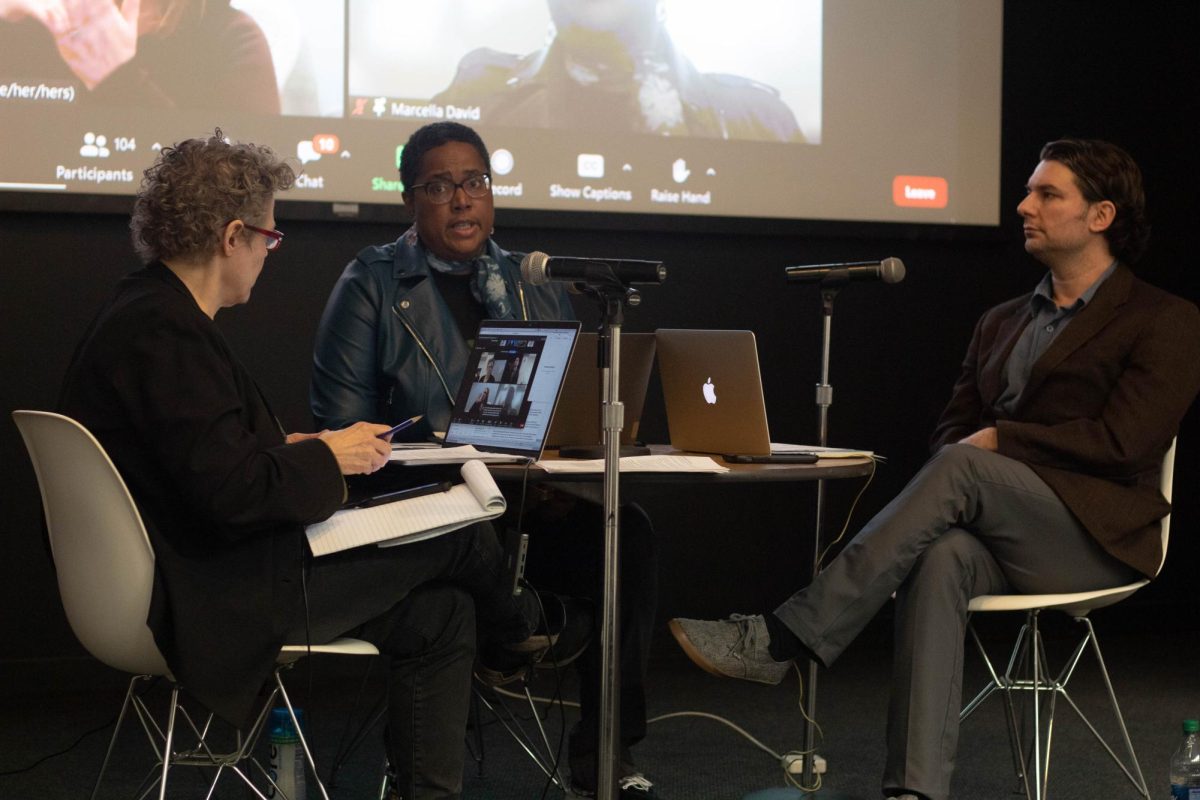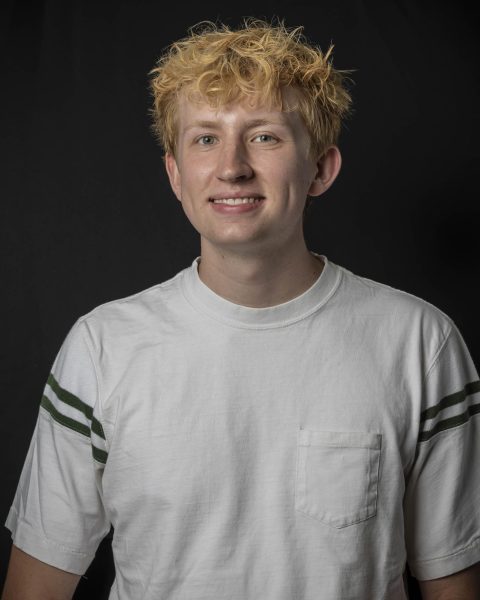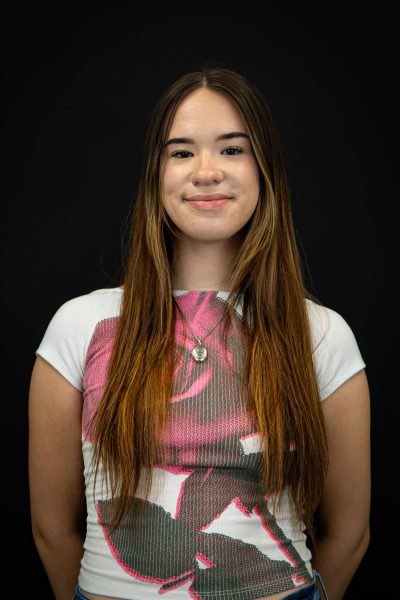At a Faculty Senate town hall on Friday, March 1, Senior Vice President and Provost Marcella David said the college was not “moving away from liberal arts” even if the number of core requirements is reduced under the president’s draft advisory report released this week.
She also said the Fall 2024 schedule has been set, with faculty assigned, so any layoffs would not happen immediately. Between 11 to 13 full-time faculty from English and Creative Writing, Humanities, History & Social Sciences and the Science and Mathematics departments could lose their jobs under the restructuring outlined in the report from President and CEO Kwang-Wu Kim.
The meeting, which was moderated by Art | Design Professor Joan Giroux and Professor of Economics Rojhat Avsar, was originally intended as an opportunity for faculty to discuss a survey of full-time faculty. However, the meeting shifted so the provost could address faculty concerns about the draft report.
The Faculty Senate has until April 10 to review and provide feedback on the recommendations in the report. Kim then will present his final recommendations to the board on May 2.
More than 100 people joined the meeting on Zoom, and about two dozen were in person at Hokin Hall at 623 S. Wabash.
“It’s not my report,” she said, adding that she and the president were committed to discussing the ideas generated by his recommendations.
David said more specifics about the cuts will be determined in the coming weeks. Senior Vice President and current Chief Financial Officer Jerry Tarrer, who will be interim president after Kim steps down on July 1, will convene a President’s Budget Advisory Board meeting on March 19.
One of the recommendations in the report is to change the teaching load for tenure and tenure-track faculty. Full-time faculty, who currently teach nine credits each semester, will be asked to teach an additional three credits per year. This is known as a 4:3 load and amounts to 21 credits per year.
David noted that years ago, Columbia faculty taught a 4:4 load or 24 credits per year.
The increased load only applies to tenured faculty and not those assistant professors who have not yet earned tenure.
“I want to make sure our tenure track faculty stay on track,” David said.
Several faculty members and the moderators asked how faculty would be able to give students the individual attention they needed and also how they would manage to fit research and scholarship work into their schedules if they had to teach additional classes.
“If we don’t all work harder, we’re gonna run out of money,” David told the faculty. “This is all about ‘How do we manage our resources and how do we teach more efficiently and effectively?’”
David said that part of what went into the decision to adjust teaching loads and class sizes was due to data on average class sizes. David said that 60% of the classes currently being taught at the college have 19 students or fewer enrolled.
David herself taught two sections of “Big Chicago Access, Civic Life & City Design” last fall, with more than 30 students enrolled in each.
In his draft presidential advisory report shared in an email with the campus community on Wednesday, Feb. 28, Kim shared his recommendations for the college to close the $38 million deficit, including reducing core general education requirements to 30 credits starting in Fall 2024.
The report states that the 30-credit Core will go into effect in Fall 2024 and additional changes in credit distribution will be reflected in 2025.
Kim also suggested the combination or revision of up to 28 majors and increased course load for tenure and tenure-track faculty.
Faculty Senate President Madhurima Chakraborty said that the senate is “gearing up to respond to the report with as much complexity as we can.”
She described faculty as being “anxious and worried.”
Chakraborty said that after the town hall, there was still some “uncertainty” in her mind.
“I’m in the English and Creative Writing Department program that doesn’t seem to be aligned with the college’s vision,” she said. “We’re hoping to see some more clarity around how much all of this restructuring is expected to save us and how much of a dent it should put in that in the operating deficit.”
At his “State of the College” address on Tuesday, Feb. 6, Kim told faculty that in an attempt to reduce the deficit, the college will implement an immediate hiring freeze and identify $19 million in budget cuts for the fiscal year beginning in September 2024.
David shared in an email on Thursday, Feb. 8 that she directed each of the college’s three schools to plan for an overall budget reduction of $3.8 million, or 6.8%, which deans will allocate across their school’s departments.
“I think it’s too soon to say what the staff changes are going to be,” David said at the town hall. “All of this planning is also against the backdrop to the fact that we are anticipating that we’re going to have a smaller student body.”
Throughout her conversation with faculty, she maintained that the proposed changes are sustainable suggestions to help restore and improve efficiency at the college.
“At the end of the day, I’m not asking anybody to do anything that’s gonna harm the student experience,” David said.
Giroux said that the faculty was given “some concrete answers and some less than concrete answers.”
“I’m looking forward to continuing to work with the faculty senate and constituents and stakeholders across the campus to get more clarity on what this outcome will be with the advisory report and all of its implications,” Giroux said.
Assistant Professor of Science and Mathematics Derick D. Jones, Jr., said that despite their concerns, they still have hope that “we can all work together to find a resolution that includes everyone.”
“I feel a little relieved, but it’s going to be a hard time, and I just wanted to make sure that the central focus is our students,” Jones said.











